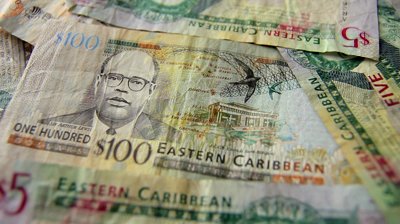BASSETERRE, St. Kitts — The Timothy Harris government will in July host a regional conference on the Citizenship by Investment Programme (CIP).
Under the CIP initiative, which in also referred to as citizenship by investment, or economic citizenship, foreign investors are given citizenship if they invest a certain amount of money in the country.
It is a controversial initiative and a dividing line in the politics of some other CARICOM countries, including St. Vincent and the Grenadines.
Harris said on Thursday that invitations have been sent out to Caribbean countries involved in the programme but a date has not been decided for the conference.
In addition to St. Kitts and Nevis, Antigua and Barbuda, Grenada, and Dominica have citizenship by investment programmes, and St. Lucia and Jamaica have expressed interest in getting involved in the initiative.
Harris made the announcement the same day that Leader of the Opposition Denzil Douglas, speaking at a separate news conference, lauded the initiative’s contribution to the performance of the economy of the twin-island federation.
“… the CBI, the CIP — whatever you want to call it as an acronym — is critically important. It is as a result of the CIP that we were able to have a surplus in last year of 700 million dollars,” said Douglas, whose Labour government was voted out of office in February.
See also:
- Gonsalves remains opposed to economic citizenship programme
- SVG risks falling behind as 4th OECS nation implements economic citizenship initiative, Eustace says
He said the surplus has created the space necessary to ensure a brighter future for Kittitians and Nevisians.
The funds also provide capital to ensure that the services required for the people are available and “lend support to the new entrepreneurial spirit that we wanted to engender here in St. Kitts and Nevis,” Douglas said.
“So, the CIP is important to us. It is because of the CIP we can boast of a 7 per cent growth rate. In the Caribbean region, it is only the Dominican Republic that had a higher growth rate than St. Kitts and Nevis,” he said.
He said that over the last few years, his country has reduced its national debt from 200 to 85 per cent of GDP.
He said there is “a downward trend that would have made us completely debt free by 2020”, adding that the country has been able to achieve this through a strategy that was assisted by the Caribbean Development Bank and the CIP.
“The CBI is important for our continued financial stability,” he said.
But Douglas admitted that there were concerns with regards to security and that is why his government had a review of the programme.
“Those concerns have been addressed…,” he said.
The United States and Canada had expressed concerns about the programme and the last Douglas administration contracted IPSA International, an international due diligence firm, to carry out a review of the programme.
Douglas said there was a 20-point recommendation that was made by IPSA to be implemented by the government in order “to ensure that the security aspect of the programme would have been at greater efficiency levels”.
Douglas said that his administration had agreed to the recommendations “and we actually started to implement a number of the recommendations”.
Meanwhile, Harris said his government is also hoping to engage international actors who have an interest in the CIP”, including the United Kingdom, Canada, the United States, and the European Union.
He defended the need for the talks in July saying, “others are going to be ahead of us.
“Few countries have the advantage that we have, few countries can boast about their treasury benefitting by as much as 40 per cent from CIP,” he said.
“I believe if we form an association … we could develop mechanisms to deal with concerns that can develop over time,” he said.







Economic citizenship, if properly managed (which is a big “if” in these corruptible Caribbean mini-states), can indeed have a beneficial economic impact on the receiving countries as the experience of Canada and other countries, where the idea of economic citizenship was hatched, has shown.
SVG has long had economic citizenship in two forms: the discretionary granting of citizenship to certain individuals (such as Dave Ames) and the preferential granting of entry and work permits to certain categories of foreigners with deep pockets.
An well organized system of granting economic citizenship would merely formalize the system already in place.
David you wrote “A well organized system of granting economic citizenship would merely formalize the system already in place.” But it goes further than that David; it means the money goes into the treasury instead of elsewhere.
Also proper research into the recipient can be carried out, research that may even of excluded Dave Ames from the form of economic citizenship that he got from Gonsalves, Had proper in depth due diligence he may never have got the deal that he got with resort site.
I remember reading Gonsalves when talking about dealing with business investors; he said he was not looking for angels when considering investors. Maybe not, but the Buccament resort has ended up causing so much international controversy, people claiming to of been ripped off. That has caused so much damage to the name of SVG; it has probably caused a serious drop in tourism and got us a stinking name as a place to invest.